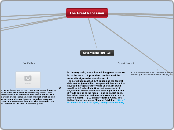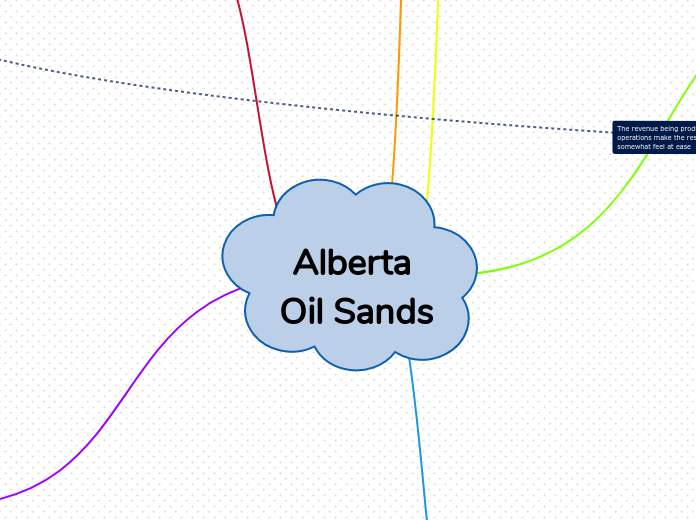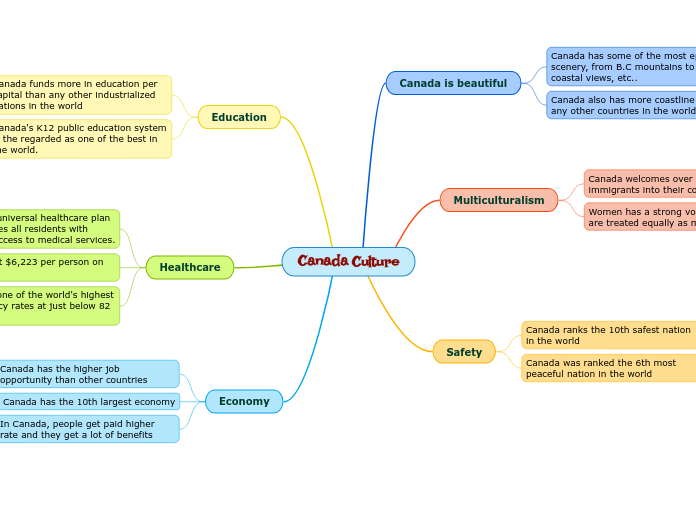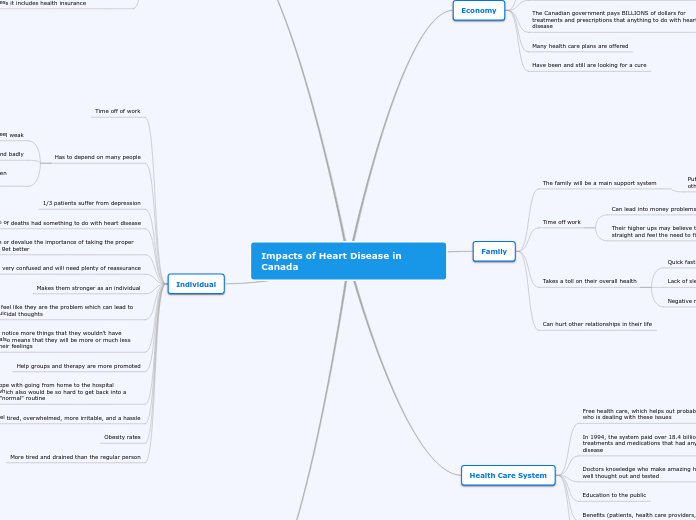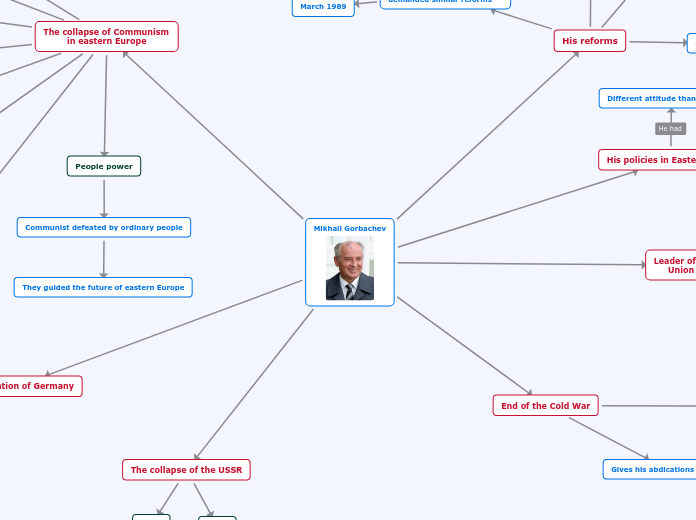The Great Recession
Present: Sage
The Current issue this recession has caused is the unemployement rate of the average american in the United States.
In 2009 the unemployment rate rose to 10% in October. Since then this rate has dropped to 8.5% as of December 2011. Although it has dropped there is still a great issue because there is obviously still a high rate of unemployment.
Out of the United States the most affected by unemployment are California, Nevada, North Carolina, South Carolina, and Michigan.
Past:Robbie
-One prominent contribution to the United State’s present day recession was the issue of the working man and the decline of unions and other labor protections.
-Because of deals struck through collective bargaining, union workers have earned 15% to 20% more than their non-union counterparts, Rodgers said. But union membership has declined over the past 30 years. In 1983, union workers made up about 20% of the workforce. In 2010, they represented less than 12%.
-"The erosion of collective bargaining is a key factor to explain why lower paid workers and middle income workers have seen their wages go down with inflation," said Bill Rodgers, a former chief economist for the Labor Department, now a professor at Rutgers University.
One topic that was discussed in Freakonomics was the control of information. It effects the average American because these big companies are taking Americans money and promising them things that are not exactly true. Bank of America for example holds back things until you have set up an account with them and then they show you all these hidden fees. People then close their bank accounts and that only hurts the bank which hurts the economy which hurts the average American.
U.S Government
Dara (present)
Current Impact of U.S Recession
-Unemployment rates increase- Lower house hold incomes- decreased investment rates-
Decreased spending= Decreased Production= Less money to keep the cycle of the economy going.
Chapter one of, "Freakomonics" spoke a lot about incentive. It's because of these various incentives that we as Americans can sped money that we don't yet possess. Banks use low intrest rates as incentives for people to take out car loans, credit, and mortgauges. Living off of borrowed money has of course has a negative impact on the U.S economy.
Aida (Past)
Past Impact of U.S Recession
-The demand for subprime loans and securities proved extremely intensive to changes in barrower quality and loan structure.
-Low and negative real federal funds
-The increase in FDIC deposite insurance from $40,000 to $100,000 per account.
I couldn't figure out how to put a picture here so I just put the link:
http://www.constructionriskadvisors.com/Portals/54915/images/graph_up-resized-600.jpg
-In "Freakonomics", chapter 2, it talked about how when people have power, they have the ability to do something. For example, how kennedy had access to the Klan's secret and decided to share it to the public so that everyone knows the secret, he had the ability/power to share it. Meaning that the government had the power to increase the insurance for $60,0000 more and that, changed our economic system. The less money you make, the more you have to pay.
Wallstreet Economy
Present (Lisa)
Connection to Freakonomics
Freakonomics is a book about the economy and the benefactors effecting it. It can connect to wallstreet through the different economical effects. The stock market is closely intertwined with the economy because the businesses selling stock, rely on a stable economy. Essentially the stock market helps keep the economy going. Freakonomics described different typical events like real estate, school incentive with tardies, and the KKK and their effects on economy.
Financial Incentive: The main reason why people invest in stocks is because if the business is successful, then they get more money in return. The wall street economy has a huge financial incentive, so therefore the economy's condition majorly effects the wallstreet market. On the other hand, the wallstreet market is a huge benefactor to the economy, so they both rely on each other for success.
Average American's Involvement
Future:Madi
To prevent recession in the future there are going to have to be some drastic changes. One of them being preventing home repossessions. When a house is repossessed it causes bank losses. To prevent houses getting repossessed the government can try to freeze mortgage rates. Cutting interest rates would be another way to prevent recession in the future because it would help boost aggregate demand. IT would also go hand in hand with house repossession because if there is a lower interest rate it would reduce mortgage interest payments. It would also help the economy because more people would be more likely to spend rather than save. There are many things that could be done in order to to precent recession in the future, and these are just a few of them.
Present:Bub
Both of these topics relate to freakonomics, because the first chapter that this book talks about is how realestate agents abuse their power in order to make profit and benefit themselves. This shows how they abuse their power and cause the housing market to drop due to the lack and ability to sell other houses so this auses a lot of forecloseures to people not being able to pay off morgages.
Bank Foreclosures: Due to house foreclosure and the unability to keep up with payments, the banks are forced to close houses and due to the lack of money floating around the community, no one is able to invest money back into the bank or into the economy which puts the bank at risk or bankrupcy.
Drop in housing market: Freakonomics shows that real-estate agents abuse their power because they do not share all the information that they know about the houses that they are selling. They do not inform house buyers about the risk of forecloser and about the over all impact that the house will have on their wallets. This shows how they abuse their power in order to give incentive to their clients which then leads them to make purchases that they are un-able to pay for.
Past:Jenny
In chapter two of Freakonomics, the power of information is discussed. Within the two examples given, the KKK and real estate agents we could clearly see how holding information gives the holder power, and when that information leaks that power is lost. This relates to the current recession because the real estate agents knew that many people could not afford the mortgages yet they did not share this information, gaining power. Eventually this turned on them and affected their business. Also, because many Americans did not know any information they were blind to the possible consequences of their spending and financial illiteracy.
Financial Illiteracy: Many people do not have large savings accounts. Because they live from paycheck to paycheck they do not have a cushion to lean on when needed, especially when retiring. People do not know how to save properly, or where to invest their money and therefore lose money that they could have saved. Even in cases where people were financially literate, they were not aware of the damage complicated mortgages would have on them. Real Estate and financial illiteracy are the leading causes to the Great Recession.
Average American
Future (Madi W)
Chapter 2 Freakonomics: Power is having control of people or things around you. Control of information can give you power because you can make people believe a particular thing or even think a certain way. If you can control the flow of information then you have control of the environment and people's opinions and knowledge. During the Great Recession, the individual American could have had information with-held from them or false information given, and then they acted a certain way that pushed the economy to tank.
Be smarter consumers
- Stop using credit cards
- Don’t take out loans you cannot pay back
- The individual American spending money leads to more demand, which means more production, which means more jobs and investment, which means the government gets more tax revenue that can be turned back into the economy.
- Avoid spending money on foreign goods. Shop at local retailers. Otherwise they can go out of business.
- Stop “chasing bargains”. Most of these destroy local economies.
-Take vacations locally
- Examples: Buy honey from the local beekeeper, vegetables from your local farms, meat from locally supplied farms, buy electronics from your country, don’t buy beer, wine and liquor that are bottled offshore.
-Work instead of living on welfare
Present (Sophie)
“When average Americans are out of work, have lost their homes and or their savings, they have little if anything to spend and help support the economy.”
Current Unemployment Rate: 8.5%
Past (Kyle)
http://www.google.com/imgres?q=bank+withdrawal&um=1&hl=en&client=safari&sa=N&rls=en&tbm=isch&tbnid=Nf5obzq3xUmjbM:&imgrefurl=http://www.cartoonstock.com/directory/w/withdrawals.asp&docid=esUec4J9vDpb8M&imgurl=http://www.cartoonstock.com/newscartoons/cartoonists/mfl/lowres/mfln2758l.jpg&w=400&h=333&ei=aOoVT4WyO4qYiQKEqsG8DQ&zoom=1&iact=hc&vpx=210&vpy=44&dur=6904&hovh=205&hovw=246&tx=106&ty=76&sig=112781429508613716717&page=11&tbnh=139&tbnw=167&start=201&ndsp=20&ved=1t:429,r:1,s:201&biw=1024&bih=612
power is when you are in a position when you have followers because you are in the position that you are in or because of the money that you have, one thing that i learned is that money creates power. control of information can give you power because your the one who decides who gets it such as the president he can withhold any information to the American people, there is a phrase used... “NEED TO KNOW” whatever he/she thinks we need to know is what we get, therefore the more power the more you information that you get and are allowed to share. for my topic the Americans contribution in the past to the recession we are in today, all what had to happen is the American people should have had more information, if the bank said, “hey, you need to pay us back quickly or the bank will suffer and that damages everyone.”
--Banks asked home owners to take on high loans and they thought they would be able to pay them back more quickly.
--The American people thought that this would have no effect on the economy and they would lag on paying them back therefore the banks lost money.
--Interest rates began to rise in 2007, housing prices lowered significantly. In many states like California, refinancing became more and more difficult.
--The number of foreclosed homes incresed.
Government
Future: Trevor
Past: Justin
h
Present: Alec
Government (NM_LA)
Future
Present (Lauren)
Suhttp://www.government-money-club.com/wp-content/uploads/graphics/governmentmoney.jpgbtopic
In January 1981, when Ronald Reagan was sworn in as the 40th U.S. president, he declared the federal budget to be out of control.
The deficit had reached $74 billion and the federal debt was at $930 billion. Reagan said that a stack of $1,000 bills equivalent to what Uncle Sam owed would be 67 miles high. Now that same stack of $1,000 bills would reach 900 miles high. In $1 bills it would pile up to the moon — and back. Not once, but twice. America continues to borrow about $125 billion a month — $10 billion of it from China. The United States now owes China $1.3 trillion.- http://economiccrisis.us/2011/05/shining-citadel-redux/
Past (Nathan)
In the 19th and early 20th centuries, many financial crises were associated with banking panics, and many recessions coincided with these panics. The financial crises includes stock market crashes and the bursting of other financial bubbles, currency crises, and sovereign defaults. The financial crisis also results in the loss of value in paper.
Wall Street
Future Roman
In the future the ecomoy will be getting better but it will take a while for that. We are in a huge hole of debt and keep getting in debt by all the things we keep spending the money on. Wall street has not just effected our contry but others as well. For us to get out of this rescession we would not just have to get our economy better but also ones in other coutries.
Present - Chris
The United States financial system is largely and intimately tied with US economics. Over 90% of current American currency is digital, with only ~7% actual print. As the economy progresses with technology many new and sometimes lucrative ways to approach the financial system appear.
Many blame the current global recession on the United States. As the adage says: when the US sneezes, the rest of the world gets a cold. Many believe that this has held true and cite the Federal National Mortgage Association (Fannie Mae) and other similar insitutions for the recession and economic crisis currently present in the United States.
In Late 2007 the housing market shifted. As institutions such as Fannie Mae and Freddie Mac began to take heavy losses to home loan mortgages and investors lost confidence, the federal government provided an essential "bail out" which was thought to increase the number of loans. With the governments support Fannie Mae and Freddie Mac specifically (now in a civil suit filed by the Securities and Exchange Commission) abused their new found power to enrich investors. Their support of high-risk and shoddy investments eventually caused the loss of over $30 billion and the decline of the US economy.
Past- Colin
Great Depression-
Large amounts of borrowed money sent into the stock market as speculative investments
A small downturn in the economy caused panic due to the high investor risk
Price to earning ratio in September 1929 was 32.6
the Pecora Commission was formed as a response by the United States Senate Committee on Banking and Currency.
Current Recession-
Loans payed out to customers who could not afford them
Loans were often backed up with Credit Default Swap agreements
These agreements enabled the sellers of the loans to get away with financing risky customers who would likely not pay back the agreed upon amount.
Partial responsibility can be pointed towards the fact that information was not being effectively exchanged, and towards the over-expanded economic climate. The average investor who had taken loans to invest in the stock market stood in a very precarious place, however while looking out for his best interests, he threw the entire country into an economic tailspin.
Insurance Companies
Past - Lorenzo
In chapter two of Freakonomics Levitt and Dubner argue that information is power, for those who hold it. This holds true with insurance companies because banks were giving out loans like no other and insurance companies were there to back them. Once people couldn't pay those loans and the market was taking a nosedive the insurance companies were there to suffer. Basically the fact that these banks and insurance companies and other corporations were witholding
- The recession in 2008 was an amalgamation of a lot of different elements. Banks giving out loans without calculating the risk of a large amount of low-interest loans. Or the housing industry crashing because of real estate agents withholding information from customers (mortgages, insurance etc.) But Insurance companies played a more subtle role in the recession, and were also adversely effected. Insurance companies were backing these banks, companies and corporations that were taking a nosedive. They had premiums, or other insurance set ups with most of the companies. This led to things like AIG (one of the largest insurance providers in the world) being bailed out first.
Banks
Freakanomics talks about the power in knowledge. People are beginning to pay more attention now that they are directly effected and push back against banks and wall street.
Future of banking- B.
Freakonomics relation: In Freakonomics there is a part talking about how useful information is and how imformation is power. This happened at the beginning of the great recession, banks were giving out loans to people and and holding some of the information and people couldn't pay the high rates.
To not let a recession like this happen again we must do these things
Banks can't give out so many low interest loans that causes alot of debt owed by the country.
we should make sure that people fully understand how credit works. This way do not have as many people making bad investments which lead to this recession.
We must have regulation over the banks making sure they are not doing anything illegal.
Present- Sierra
There is still a struggle between representer and represented. Currently there are calls to action and protests against the 1% the struggle to keep our democratic abilities and fall short of a destructive world of consumption, profit, and greed.
ex:
Occupy Portland: Nations call to action to shut down the corporations
Call to action against the NDAA
Past- George
Chapter 2 deals with the notion of information containing a great deal of power. This pertains to the banks involvement in the recession. Rather than the information strongly affecting choices by people, there was a lack of information given to the people. Citizens were given a false sense of confidence in their ability to pay the low rate loans given by banks. Consequently, the debt of these citizens increased dramatically. In terms of information, it was the control and limitating of it that caused the large amount of debt to be accumulated by a great deal of the population.
Subtopic
The Stock Market Crash in 2000 caused the Federal Reserve to drive interest rates down to amounts not seen before.
Deregulation occurred over the course of several years prior to the recession, towards companies such as Frannie Mae and Freddie Mac.
Banks offered easily obtainable forms of credit, that allowed people to attempt a series of bad investments, predominantly in housing
The lowered interest rates caused an upsurge in the amount of debt owed by Americans
Miscalculated risk factors by banks
Average Americans
Present (Cory)
Reposessions
Loans are a huge part of today's economic recession and a part of almost all Americans life. Loans are used for buying things people don’t have the cash for. One example is a car, most people don’t have the money for a $30,000 dollar car so to get the car you take out a loan. If the person doesn’t pay the monthly payments then it becomes the banks. The bank then calls out a towing company to repossess the car to bring it to a holding lot until they can sell it or get the money from the loan taker. It isn’t necessarily just a car that it can happen to, it is basically any thing that someone takes a loan out on and doesn’t pay the monthly payments on. The bank then has to sped more money on trying to sell it and losses money on selling it as well. All this lost money all gets drawn out of the economy.
1.5 Million Cars were repossessed in 2007
Reposession Cartoon: http://goodnewsaday.files.wordpress.com/2011/07/a-repossession-cartoon.jpg?w=640
Foreclosures
House foreclosures are a large part of today’s economic recession. House foreclosures start with a loan bought by a bank. The bank loans money to a family to buy a house but when the family doesn’t pay the monthly loans then because the money used to buy the house is the bank’s the bank owns the house. Since the bank now owns the house they kick the family out. The family becomes homeless and now the house sits empty sometimes years at a time. Those years are hundreds of thousands of dollars not spent on banks and not put into the economy. Freakonomics talks about information and how the manipulating of information is called power. With the lack of information the home owner has, makes the bank more powerful which allows them to foreclose on a family.
1.2 Million houses were lost between 2007 and 2010
Forclosure Picture: http://media.avvo.com/avvo/cms/foreclosure_house.jpg Foreclosure Statistics Video: http://www.viddler.com/v/958ef3b5
Past (Jessee)
Real estate is the one of the main reasons why America was lead to The Great Recession. Banks persuaded home owners that it would be easier to pay off their loans. Therefore Americans didn't worry about paying their loans so it when it came time for them to pay they didn't have the money. Then house prices decreased and interest rates began to increase. More and more homes became foreclosed than ever and for Americans to refinance homes has been very difficult.
